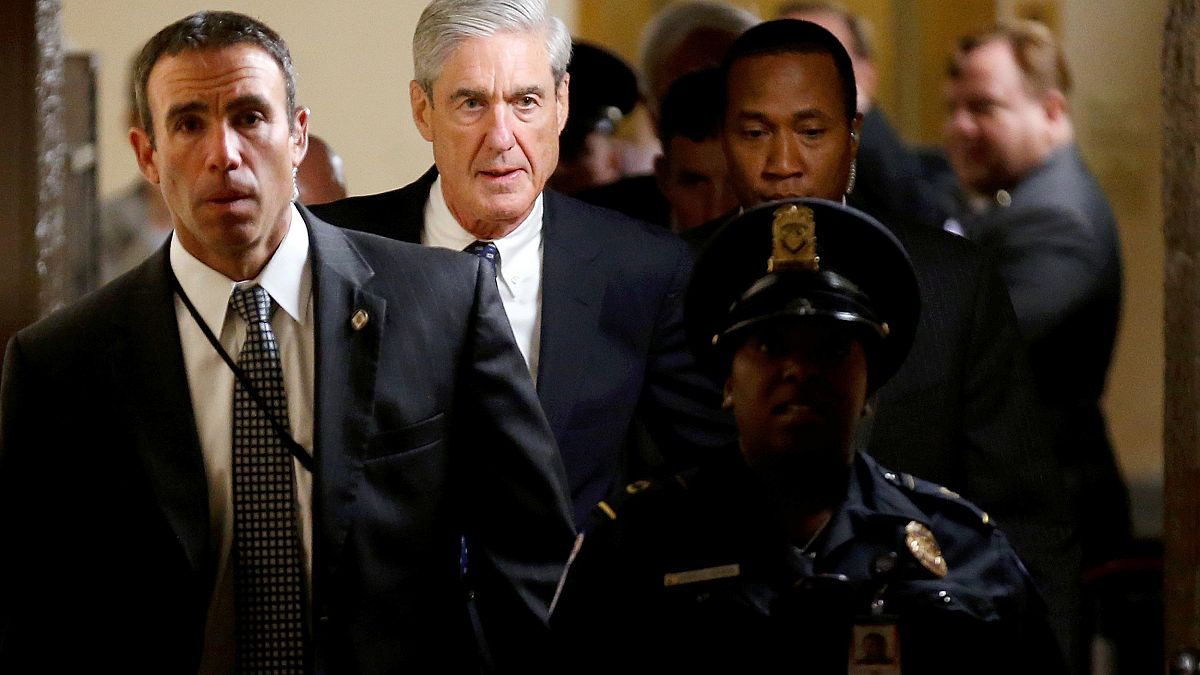President Trump's legal team is nearing completion of written answers to questions posed by special counsel Robert Mueller on Russia.
President Trump's legal team is nearing completion of written answers to questions posed by special counsel Robert Mueller that may be submitted as early as this week, a source familiar with the matter told NBC News Tuesday.
The answers will pertain only to matters relating to Russian interference in the 2016 election, not obstruction of justice, the source said.
Trump's lawyer Rudy Giuliani has previously said that obstruction questions were off limits, although he was less definitive in an interview with NBC News.
The source says the president's legal team considers questions about obstruction to be related to the firing of FBI Director James Comey, and therefore to infringe on the president's power to hire and fire under Article 2 of the Constitution.
The president met with his legal team yesterday and is expected to do so again later this afternoon related to Mueller's request for a response, a person familiar with the meetings said.
The New York Times reported in Aprilon a series of questions Mueller wants to ask Trump, questions said to be based on notes taken by Trump's legal team.
According to that list, Mueller wants to ask Trump about his 2013 trip to Moscow, his effort to build a Trump Tower in that city, his discussions about meeting with Russian President Vladimir Putin and when he learned that the Russians had hacked Democratic emails during the 2016 campaign.
Typically, prosecutors would not be satisfied with written answers to questions from a subject under investigation. But Mueller is facing pressure to wrap up his inquiry, and he may want to avoid a lengthy court fight.
"I can't imagine that a prosecutor as good as Bob Mueller would think that written answers to written questions… are sufficient," former federal prosecutor Chuck Rosenberg said on MSNBC. "I imagine that the Mueller team is still going to want to sit down with the president."
Mueller has the option of issuing a grand jury subpoena to seek to compel the president to answer questions under oath and in person, but that could lead to months of litigation. The courts have ruled that the president is not exempt from giving evidence in a criminal investigation, but they have not ruled on the exact question of whether the president can be compelled to testify.
When President Bill Clinton testified before a grand jury in 1998 as part of special counsel Kenneth Starr's investigation, he did so voluntarily.
Trump's move to answer questions comes as Mueller appears to be tightening the legal noose around some of his associates who are suspected of having advanced knowledge about hacked emails during the campaign.
One of them, Jerome Corsi, says he expects to be charged with perjury, and another, Roger Stone, has also said he expects to be indicted.
